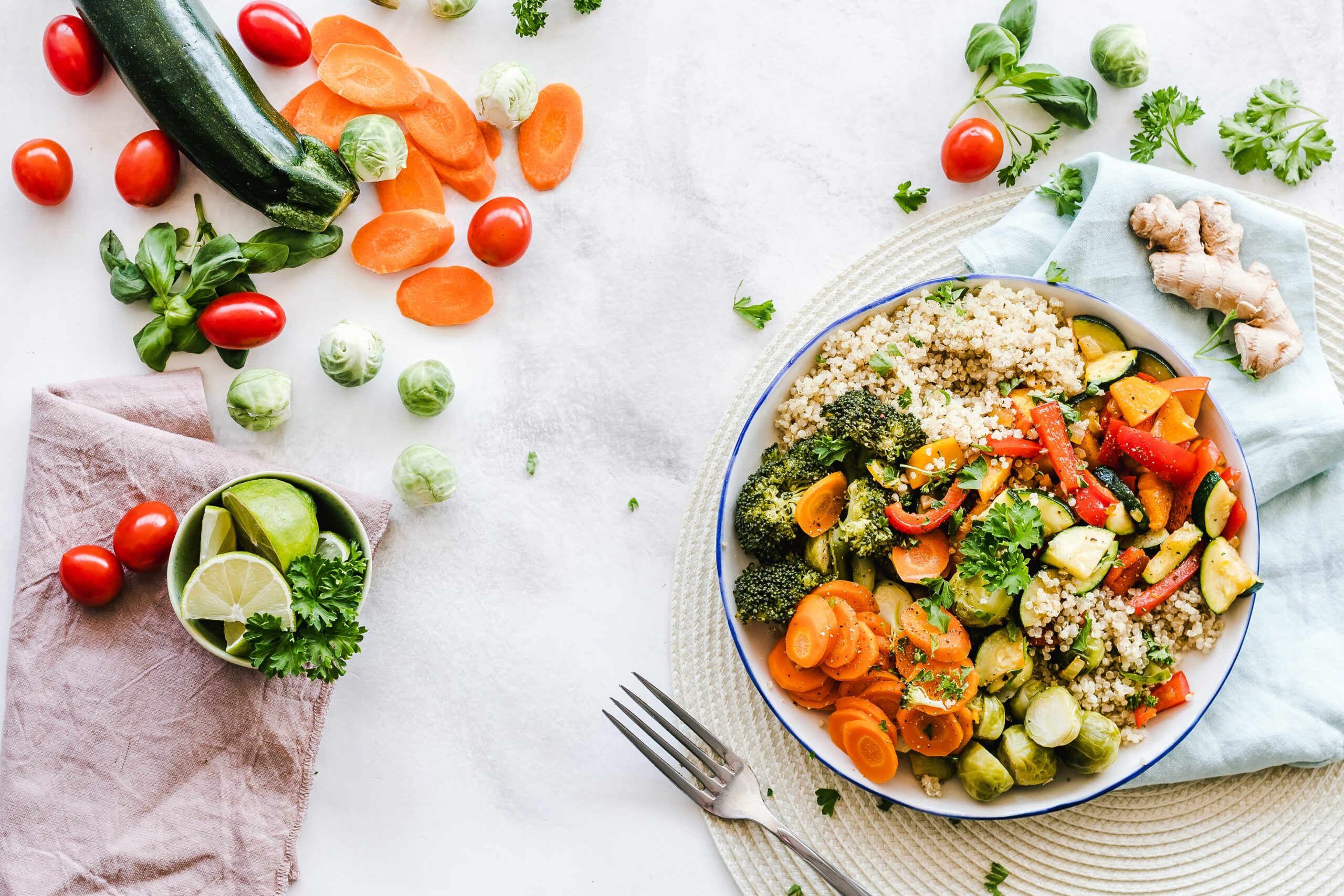If you are looking to improve your mood with food, look no further! Don’t worry this isn’t another recommendation for a cleanse or some kind of diet that only allows for milk that’s been squeezed from oats or better yet squeezed from Italian, organic goats (full disclosure: I might be into the whole goat thing). Rather it’s just to state a basic fact: the food we consume impacts our brain health.
It’s clear and easy and backed by science. For all my science nerds out there, here it is. The SMILES study published in 2017 was the first randomized controlled trial to demonstrate that making changes in your eating habits could be an effective way to improve your mental health. 32% of people in the treatment group achieved remission as opposed to the control group of 8%. Remission with food alone as the treatment! No wonder it rocked the mental health world.
If you want to improve your mood with food, you can go about it in a pretty uncomplicated way. Eat mindfully. As a recovering rule follower, I think it’s essential our framework is flexible. So look at the following as gentle guidelines rather than rigid rules. Rigidity and perfectionism get us nowhere good real fast but that’s an entirely different article.
Ways to Improve Your Mood with Food
Eat out of the ground, not out of the box. This one is super simple. Eat whole foods, not food-like substances. It’s strange that I need to write this; nonetheless, it is the current state of affairs.
Step up the variety. Also super simple. Eat as many different plants as you possibly can. Our brains need this. That’s all. Don’t you love how straightforward this is?
Incorporate omega-3 fatty acids. A tad more explanation is needed for this one. In a nutshell, symptoms of depression and anxiety may be the result of inflammation present in our body. If we are inflamed by any number of things (infection, lack of exercise, significant stress, poor diet) we need to cool the fires. Eating omega-3 fatty acids by way of fun little fatty fish like sardines or wild-\caught Alaskan salmon is like taking a fire hose to your inflammation. Once our fires are no longer simmering, we see a reduction in depression and anxiety. No worries if you aren’t into eating seafood, supplementation is quite effective. Just make sure you talk to your doctor first.
Become friends with fermented foods. Sounds a little weird, I know. But eating food that’s been fermented shifts our gut health in our favor tremendously. And when our gut health is in line, typically our brain health is in line. (There’s a direct link between our gut and our brain and it’s called the vagus nerve – we will definitely talk more about this in future articles so stay tuned.) People have been fermenting foods all around the world for thousands of years so clearly they were onto something. Some of my favorites are kefir, plain yogurt, sauerkraut, kimchi, kombucha on occasion and even sourdough bread.
Drive home instead of drive-thru. I may be stating the obvious with this one but fast food is harming our health. With our brains utilizing 20%-30% of our energy intake, we must fuel up with nutrient-dense food as often as possible. Not to mention industrialized food products create inflammation throughout our body. Our brain is no exception. And like I stated before, chronic inflammation has been associated with symptoms of anxiety and depression. Some things just bear repeating.
Get your sugar fix another way. We all know sugar is not so sweet for our system. But it plays into our anxiety symptoms way more than we may care to understand. I can’t tell you how many times I have had a client misread a blood sugar regulation issue as an anxiety attack. As a clinician, that’s concerning. Is sugar all bad and must be eliminated immediately from our diet? No. But could the average American stand to cut their intake way on down? Sure. Instead of noshing on milk chocolate, switch to dark chocolate (70% or higher) or reach for fruit to satisfy your craving. And every once in a while when you are in the mood for dessert, I say go for it. Deprivation is not the answer to longevity in healthy eating habits
Eat with other humans. Let’s make eating together cool again. Cooking and eating with family and friends is a way to connect, celebrate, and slow down. Fun fact: Children who participate in family dinners at least 4 times per week experience less depressive symptoms, are less likely to use drugs, perform stronger academically, and have better physical health outcomes. Is anybody into killing a whole lot of birds with one stone? No worries, I am not talking about actual birds for all my bird lovers out there.
Conclusion
In conclusion, embracing a mood-boosting lifestyle through mindful food choices can significantly impact mental well-being. Beyond just eating whole foods, incorporating plants, and embracing omega-3 fatty acids, fermented foods play a vital role in restoring gut health, which is connected to brain function through the vagus nerve.
Steering clear of fast food and reducing sugar intake, opting for healthier alternatives like dark chocolate or fruit, addresses the inflammatory aspect that affects anxiety and depression symptoms. The act of sharing meals with others promotes connection, celebration, and a deliberate pace, with benefits for mental and physical health.
Remember – this is a journey towards a sustainable lifestyle, not a restrictive diet, helping improve your mood with food and enhance your overall well-being. So tinker and toy with cooking and eating to see what works best for you and your loved ones. Feel good for even trying and be empowered by your ability to improve your mood through your food choices.
If you are looking for more tips on how to improve your mood, a mental health professional can help. Reach out to us anytime for a complimentary 15-minute phone consultation.



